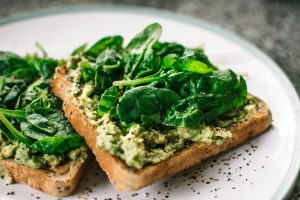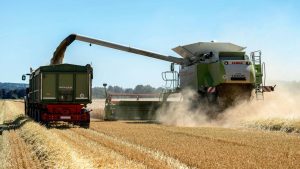Mycelium Maturation: How Fungi Fermentation is Redefining Meat Alternatives
Mushrooms have long been a staple in vegetarian and vegan diets, known for their meaty texture and umami flavor. But what if there was a way to take mushrooms one step further and use them as a replacement for meat entirely? Enter mycelium maturation: the process of fermenting fungi to create a plant-based meat alternative. This innovative method is revolutionizing the food industry and providing a sustainable and ethical option for meat lovers. In this article, we will explore the process of mycelium maturation and how it is redefining meat alternatives.
The Rise of Meat Alternatives
As the negative impacts of factory farming and the consumption of meat become more apparent, the demand for plant-based meat alternatives has skyrocketed. Meat production is a major contributor to greenhouse gas emissions, land and water degradation, and deforestation. Additionally, health concerns such as heart disease and cancer have been linked to a diet high in animal products. As a result, many individuals are seeking more sustainable and healthier options when it comes to their food choices.
The Problem with Current Meat Alternatives
While there are several plant-based meat alternatives on the market, most of them are made from highly processed ingredients such as soy, wheat, and pea protein. These ingredients often lack the texture and flavor of real meat and can be high in sodium and additives. Furthermore, many of these products are not suitable for individuals with allergies or sensitivities to these ingredients. This is where mycelium maturation comes in.
The Process of Mycelium Maturation
Mycelium maturation is a fermentation process that uses fungi, specifically the mycelium, to create a meat alternative with a near-identical texture and flavor to traditional meat. Mycelium is the vegetative part of a fungus, consisting of a mass of branching, thread-like hyphae. These strands form the basis of the mushroom and can be utilized in the fermentation process.
Fermentation: The Key to Creating Meat Alternatives
Fermentation is a natural process that has been used for centuries to preserve and enhance the flavor of food. In the case of mycelium maturation, fungi are grown in a controlled environment where they are fed a blend of nutrients, including sugars and proteins. This triggers the growth of the mycelium, which then forms into a cohesive mass, mimicking the texture of meat.
The Benefits of Mycelium Maturation
A Sustainable and Ethical Option
Mycelium maturation provides a sustainable and ethical option for meat lovers. The production of this plant-based meat alternative requires significantly less land, water, and resources compared to traditional meat production. Additionally, it eliminates the need for factory farming and the ethical concerns surrounding the treatment of animals for food.
Nutrient-Dense and Allergy-Friendly
The fermentation process used in mycelium maturation also results in a nutrient-dense product. Fungi are a source of fiber, vitamins, and minerals, making this meat alternative a healthier option compared to highly processed alternatives. Furthermore, mycelium is free from common allergens, making it suitable for individuals with dietary restrictions.
The Future of Mycelium Maturation
As the demand for sustainable and ethical food options continues to rise, mycelium maturation is set to disrupt the meat industry. Companies such as MycoTechnology and Ecovative Design have already developed mycelium-based meat alternatives and are working on expanding their production on a larger scale. With advancements in technology and research, mycelium maturation has the potential to become a mainstream source of protein and change the way we think about meat.
The Bottom Line
Mushrooms are no longer just a side dish or meat substitute for vegetarians. Thanks to the process of mycelium maturation, they are now at the forefront of the plant-based meat revolution. This innovative fermentation process is creating a sustainable and ethical option for meat lovers, providing them with a nutrient-dense and allergy-friendly alternative that rivals the taste and texture of traditional meat. It is a step towards a more humane and sustainable future for our planet and our diets.











